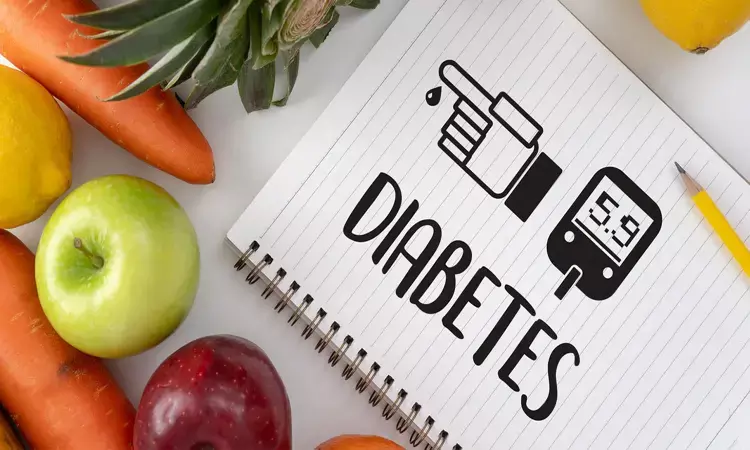- Home
- Medical news & Guidelines
- Anesthesiology
- Cardiology and CTVS
- Critical Care
- Dentistry
- Dermatology
- Diabetes and Endocrinology
- ENT
- Gastroenterology
- Medicine
- Nephrology
- Neurology
- Obstretics-Gynaecology
- Oncology
- Ophthalmology
- Orthopaedics
- Pediatrics-Neonatology
- Psychiatry
- Pulmonology
- Radiology
- Surgery
- Urology
- Laboratory Medicine
- Diet
- Nursing
- Paramedical
- Physiotherapy
- Health news
- Fact Check
- Bone Health Fact Check
- Brain Health Fact Check
- Cancer Related Fact Check
- Child Care Fact Check
- Dental and oral health fact check
- Diabetes and metabolic health fact check
- Diet and Nutrition Fact Check
- Eye and ENT Care Fact Check
- Fitness fact check
- Gut health fact check
- Heart health fact check
- Kidney health fact check
- Medical education fact check
- Men's health fact check
- Respiratory fact check
- Skin and hair care fact check
- Vaccine and Immunization fact check
- Women's health fact check
- AYUSH
- State News
- Andaman and Nicobar Islands
- Andhra Pradesh
- Arunachal Pradesh
- Assam
- Bihar
- Chandigarh
- Chattisgarh
- Dadra and Nagar Haveli
- Daman and Diu
- Delhi
- Goa
- Gujarat
- Haryana
- Himachal Pradesh
- Jammu & Kashmir
- Jharkhand
- Karnataka
- Kerala
- Ladakh
- Lakshadweep
- Madhya Pradesh
- Maharashtra
- Manipur
- Meghalaya
- Mizoram
- Nagaland
- Odisha
- Puducherry
- Punjab
- Rajasthan
- Sikkim
- Tamil Nadu
- Telangana
- Tripura
- Uttar Pradesh
- Uttrakhand
- West Bengal
- Medical Education
- Industry
First-degree relatives of diabetes patients at increased risk for NAFLD, study finds

China: A first-degree relative with diabetes (FHD) was found to be an independent risk factor for nonalcoholic fatty liver disease (NAFLD). FDRs were more prone to NAFLD regardless of glucose metabolism status, says a new study conducted by Xiang Hu and team. The data of this study is well elaborated in the Journal of Diabetes and its Complications.
First-degree relatives of diabetic patients (FDRs) have a shared genetic history with diabetic patients. Insulin resistance has been identified as a frequent cause of diabetes and NAFLD. The current study sought to evaluate the relationship between first-degree FHD and NAFLD, as well as the role of glucose metabolic state.
The current study examined a subset of the baseline data from the REACTION study, which was done in a community population. A total of 11,162 individuals were enlisted, with an average age of 55.57 9.66 years, comprising 9870 non-FDRs and 1292 FDRs. First-degree FHD was defined as having at least one diabetic patient among parents, siblings, or children. To identify NAFLD, the fatty liver index (FLI) was determined.
The results of this study stated as follow:
1. Non-FDRs and FDRs had substantially different proportions of individuals without NAFLD, with intermediate FLI, and with NAFLD.
2. FLI was one of the metabolic parameters that were found to be independently related to first-degree FHD.
3. Multivariate variance analysis indicated that first-degree FHD and glucose metabolic status had positive relationships with FLI that were independent of each other.
4. Multiple stepwise linear regression analyses revealed that in males, premenopausal women, and postmenopausal women, first-degree FHD was independently and positively linked with FLI.
In conclusion, regardless of glucose metabolic state, first-degree relatives of diabetic individuals were more prone to NAFLD. As a result, even in the absence of diabetes, it is critical to detect and prevent NAFLD in first-degree relatives of diabetic patients.
Reference:
Xiang Hu, Weihui Yu, Lijuan Yang, Wei Pan, Ke Xu, Xueqin Chen, Qianqian Li, Yaozhang Zhang, Gang Chen, Junping Wen, Xuejiang Gu, Xingxing Zhang. First-degree family history of diabetes is associated with nonalcoholic fatty liver disease independent of glucose metabolic status. https://doi.org/10.1016/j.jdiacomp.2021.108083
Medical Dialogues consists of a team of passionate medical/scientific writers, led by doctors and healthcare researchers. Our team efforts to bring you updated and timely news about the important happenings of the medical and healthcare sector. Our editorial team can be reached at editorial@medicaldialogues.in.
Dr Kamal Kant Kohli-MBBS, DTCD- a chest specialist with more than 30 years of practice and a flair for writing clinical articles, Dr Kamal Kant Kohli joined Medical Dialogues as a Chief Editor of Medical News. Besides writing articles, as an editor, he proofreads and verifies all the medical content published on Medical Dialogues including those coming from journals, studies,medical conferences,guidelines etc. Email: drkohli@medicaldialogues.in. Contact no. 011-43720751


